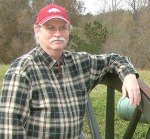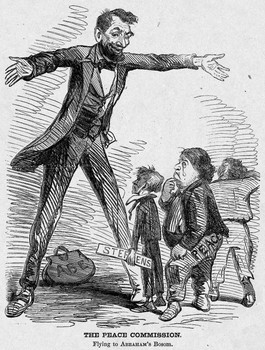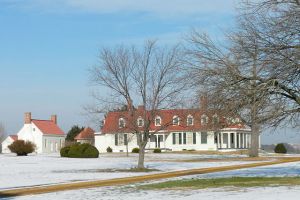
In late 1864 and January 1865, two American Presidents on the continent – Abraham Lincoln and Jefferson Davis — used back-channel contacts to try to negotiate an armistice and peace agreement that would end the Civil War.
Early efforts had failed, but Lincoln, haunted by all the killings, kept hoping to restore the Union short of a total annihilation of the Southern states in rebellion. But he faced radicals in his own party – Republicans – who wanted to punish the South and inflict hardships on Southerners via military occupation and reconstruction.

As the two presidents tried to set up a peace meeting, they were having trouble getting past two preconditions, one by Lincoln and one by Davis. Lincoln required the states in rebellion to lay down their arms and agree to rejoin the Union. Davis insisted the Northern government recognize the Confederacy as an independent nation.
With two such conditions, it hardly seemed possible a peace meeting could ever take place. Yet it did – on February 3, 1865, aboard Lincoln’s personal steamship, the River Queen, moored at Hampton Roads, Virginia. I thought it would be intriguing to have Captain Bill Stamford, assigned to the Confederate War Department in Richmond, on the River Queen for that conference. After all, one of Bill’s bosses, Assistant Secretary of War John Campbell, was one of the Southern commissioners.
I’m now writing the outline for the chapters covering the peace conference. It has turned out to be more difficult and complicated than I expected. The Machiavellian maneuverings plotted by Northern and Southern politicians are too byzantine. The discussions at that peace meeting aboard Lincoln’s ship may prove too tedious for the reader more interested in adventure and sex.

I’ve had to rewrite the outline for those chapters dealing with the Hampton Roads conference as I’ve learned more about those negotiations. My earlier versions were based on overviews I found on the Civil War Trust and Encyclopedia Virginia websites. I’ve since come across the writings of Campbell and another of the Confederate delegates, Vice President Alexander Stephens. They shifted me away from doing a scene on the River Queen.
I know the Confederate peace commissioners in late January wheeled through Confederate and Yankee lines to General Grant’s headquarters at City Point. At first I thought the details were ironed out and they moved smoothly through the lines. Upon further reading, it turned out not to be the case. Grant was still up north visiting his wife and kids, so he couldn’t tell Union General Edward Ord to send the Confederates through the Federal lines to his headquarters. Instead, Lincoln got involved and eventually telegraphed Ord to send the Confederate peace commissioners through the lines to Grant’s headquarters. It was an unexpected delay revealing that Lincoln was still debating whether or not to meet with them.

Historical details are sketchy on the mode of transportation used to get to City Point, so I decided to put the CSA delegation in buggies. The eventual passage through the lines and the trip to City Point will be my first scene. It has some drama. Confederate and Union troops cheered when the delegates passed through. One historical account said they were shouting, “Peace! Peace! Peace!” I want to use the buggy ride as a way to use dialogue between Bill, his buddy Charlie and Campbell to discuss their hopes and fears for the peace conference and the future.
When I get Bill and Charlie to Grant’s headquarters, I intend to continue exploring the hopes and fears and the overall difficulty of negotiating a war-ending peace treaty. Grant put on a full-on charm offensive, wining and dining the Confederate delegates, then telegraphing Lincoln that they were open to restoration of the Union. So Lincoln agreed to meet with them. Grant liked having his wife Julia with him, and I’ve seen photos of them and their son Jesse at City Point. Julia Grant is an intriguing woman, one caught between her husband, commander of all U.S. armies, and her father, a fanatical supporter of the Confederacy. She’s very much like Bill, who has an Ohioan mother and a Tar Heel father. I’m convinced Julia and Bill need to have a heart-to-heart chat about a divided nation, divided families and the issue that split the nation apart – slavery. The Missouri woman had a worrisome time releasing her household help, all slaves. That’s right… the future first lady early in the war didn’t want to give up her slaves.

There’s another scene I want to do. It’ll take place back in Richmond inside the apartment of Bill and his wife Franny. Bill will reveal the results of the peace meeting to her, and then he’ll tell her that he expects to be ordered into the trenches. He knows Grant will soon launch his spring offensive that will likely lead to the fall of Richmond and Petersburg. Franny will be furious. She worked hard to get Bill the War Department job. He has already suffered a shell-fragment wound that required surgery and recuperation back in North Carolina. With the war all but over, she fears her new husband will die – and for nothing.
Franny won’t be right about Bill dying. But ten thousand Confederate and Union troops will die in those last weeks of the war. Those cheers when the peace commissioners went through Confederate and Yankee lines went for nothing.
# # #
I’m an author with three fantasy novels to my credit – The Emperor’s Mistress, Thief’s Coin and Assassins’ Lair. The books make up a trilogy titled Larenia’s Shadow. A fourth novel, this one a historical romance set during the Civil War, is scheduled for publication in October. It’s called Blessed Shadows Dark and Deep. All my novels can be purchased via the website of my publisher, Wings ePress, as well as the websites of Amazon and Barnes and Noble.
Mike I enjoyed reading your interesting look at Civil War history. Good luck with your novel.
LikeLiked by 1 person
Thank you, Abbie. You’re always the first person to make a comment. That’s faithfulness.
LikeLiked by 1 person
Mike, I’m not always the first one to comment. Ttime, I donbbt get around to reading blog posts till late bfn or earlyevening. You just got me on a good day.
LikeLiked by 1 person
I do love all the research you are sharing as you continue to tell Bill and Fanny’s story. What a time in our history that was, yet so many people continue to know little or nothing about the whole of the events during those years. So many heroes doing the little things that don’t always make the history books. Sometimes fiction tells a story better. Good luck. Doris
LikeLiked by 1 person
I like ‘Sometimes fiction tells a story better.’ I think you’re right.
LikeLike
That’s the way of research, isn’t it Mike? When I uncover something new I tend to want to change things in my manuscript. Your plans are absorbing and I know you’ll work your way through your choices. I have no idea, though, about what a Tar Heel father is?(an Ohioan mother is clear) It’s a phrase I am guessing at but would love clarification on.
LikeLiked by 1 person
Tar Heel is someone born and raised in North Carolina. The nickname of the University of North Carolina sports teams is Tar Heels. Right now I’m outlining the capture of Richmond. I found a nice account of its fall. So many people thought General Robert Lee would again do his magic and defeat the Federal forces besieging Richmond and Petersburg. Instead, rather than see his army destroyed, Lee abandoned the cities and tried to escape south and link up with the Army of Tennessee fleeing Union General Sherman’s army. The Union’s General Grant cut him off at Appomattox and forced his army — the Army of Northern Virginia — to surrender. I’m putting Bill, his pal Charlie, Franny, and Charlie’s fiancé in the climatic scene of Richmond’s fall. If I do it right, it should be quite vivid.
LikeLike
I was puzzled by “tar heels” too so googled it. Found three theories but grabbed the 3rd: “A letter found in 1991 by State Archivist David Olson lends credence to another more direct theory. A letter from Maj. Joseph Engelhard describes a fight involving men from North Carolina in which Lee was heard to have said, “There they stand as if they have tar on their heels.”
The letter, dated August 24, 1864, told the tale of a battle on the outskirts of Petersburg, Va. Engelhard was elected secretary of state for North Carolina in 1876.” (Found on goheels.com) Thoroughly enjoyed your blog as I love history and had a great grandfather in the civil war as well as being related through marriage to Nancy Hanks. Sounds like your novel will be great.
LikeLiked by 1 person
When I lived there, I was told the term Tar Heel originated in the 18th century when tar, pitch and turpentine created from the vast pine forests were some of North Carolina’s most important exports early in the state’s history. They were used by sailing ships.
LikeLike
I am so intrigued by your story and your blog post, Mike! I don’t think I could do all the research it takes for the books you, Nancy, and Doris compose… but thankfully, there are people like all of you to tell these fascinating stories. I look forward to your book’s release this fall, Mike!
LikeLiked by 1 person
Thanks, Gayle. I’ve been doing research and putting together the outline for the abandonment of Richmond in early April 1865. I’d done some preliminary outlining of the early hours of Saturday, April 1 when Lee sends a telegram to President Davis telling him he can’t defend Richmond and Petersburg any longer and is putting his depleted army in motion. I did a scenario I liked, but then had to change it when I read more on how it unfolded. Lee sent the telegram on Saturday, April 1, but Davis didn’t read it until at church on Sunday morning. So now there’s going to be a change… Bill and Franny will be in church when they see Davis look at the telegram, motion for other leaders to leave the service with him. Soon, the steam sirens and church bells will be rings incessantly, letting everyone know that Lee has no more miracles. I think that’s pretty dramatic and will work out nicely when I write the scene for real.
LikeLike
Thanks for outlining your next novel for us. It is fascinating how you research and put it all together. I wish I would get back into writing, painting or something creative. Good luck on both books. Cher’ley
LikeLike
Thanks, Cherley. I just posted this story on the outline on my Facebook author’s page. By the way, last night (or early this morning) I finished the outline. Ready to start writing the novel. I still haven’t come up with a title I’m happy with. My latest rambling: ‘The Shadows Of War & the Home Front’.
LikeLiked by 1 person
I think that sounds like a good title. Congrats on finishing your outline.
LikeLiked by 1 person
What an interesting story. I didn’t know that Grant wined and dined those people and sent them to Lincoln. I didn’t realize half the stuff that you have in the blog. Thanks.
LikeLiked by 1 person
I had sketchy knowledge of the brief peace talks aboard Lincoln’s ship, but — like you — I didn’t know the fuller details until I delved into the peace conference’s background.
LikeLike